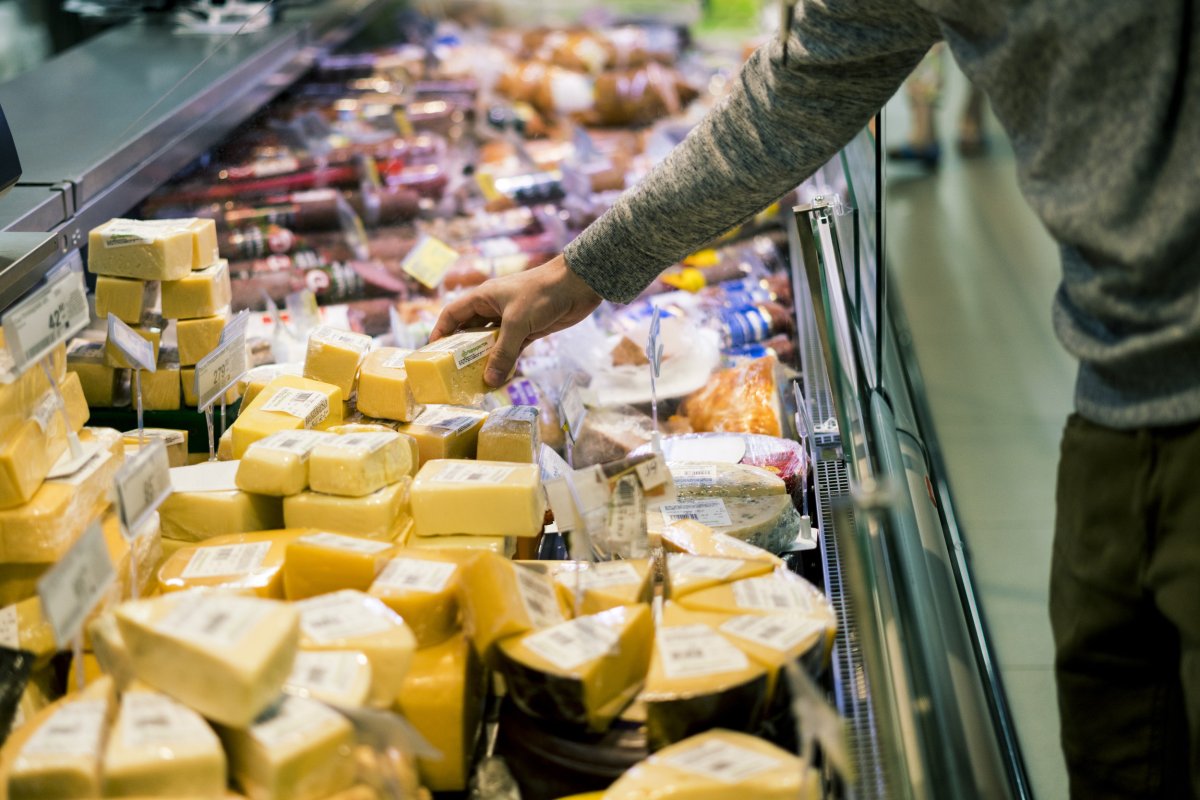A cheese product sold in five states has been recalled over concerns of potential contamination with Listeria monocytogenes, a dangerous bacteria.
Why It Matters
Consuming food contaminated with Listeria monocytogenes can cause the infection listeriosis, which is capable of causing severe illness in people who are otherwise healthy. Infections are sometimes fatal among vulnerable demographics like older adults, young children and those with a weakened immune system.
What To Know
Abbey Specialty Foods of Fairfield, New Jersey, announced in a notice shared by the U.S. Food and Drug Administration on Friday that two of its 5.2-ounce "Wicklow Gold Cheddar" products were being recalled over contamination concerns.
"The recall was initiated after our supplier, Wicklow Farmhouse Cheese LTD. notified Abbey Specialty Foods they were recalling these products due to potential Listeria monocytogenes contamination," the notice states.
The recall applies to specific "Wicklow Gold Cheddar Nettle & Chive" and "Wicklow Gold Cheddar Tomato & Herb" products sold in Massachusetts, Maine, New Hampshire, Ohio and Colorado.
The recalled "Wicklow Gold Cheddar Nettle & Chive" product has the batch number "24192," lot number "1113880" and UPC number "797776045730."
The recalled "Wicklow Gold Cheddar Tomato & Herb" packages have the batch number "24175," lot number "1113881" and UPC number "797776045778." Both recalled products have a "sell by" date of June 2, 2025.

Customers who purchased the recalled cheese were urged to either "return them to their place of purchase for a full refund or dispose of the products."
Those with additional questions about the recall were asked to contact the company by emailing info@abbeyspeciatly.com or via phone at 862-210-8150 from 9 a.m. to 5 p.m. ET Monday to Friday.
Newsweek reached out for comment to Abbey Specialty Foods via email on Friday night.
What People Are Saying
Abbey Specialty Foods said in the recall notice, "The few distributors and retailers that received the product have been informed of this possible health risk and have removed the products from their shelves.
"To date, there have been no confirmed reports of adverse health events due to the consumption of these products."
About 260 of an estimated 1,600 annual U.S. listeriosis cases are fatal, according to the Centers for Disease Control and Prevention (CDC).
Listeriosis is often limited to the digestive system, with symptoms such as diarrhea and vomiting developing within 24 hours of consuming contaminated food. But a more invasive form of the illness develops in some people within two weeks.
Symptoms of invasive illness include fever, muscle aches, headache, stiff neck, confusion, loss of balance and seizures. About one in 20 people suffering from invasive listeriosis without being pregnant will die of the illness.
For those who are pregnant, symptoms are generally mild or nonexistent, but invasive illness "usually leads to miscarriage, stillbirth, premature delivery, or life-threatening infection of the newborn," according to the CDC.
What Happens Next
As the recalled product had limited distribution and has since been removed from store shelves, Friday's cheese recall is unlikely to affect many consumers. But similar recalls are likely in the future as Listeria monocytogenes contamination concerns are a relatively frequent reason for initiating a food recall.


















:quality(85):upscale()/2024/04/24/878/n/3019466/36c5693c662965c5d1ce91.72473705_.jpg)

 English (US) ·
English (US) ·